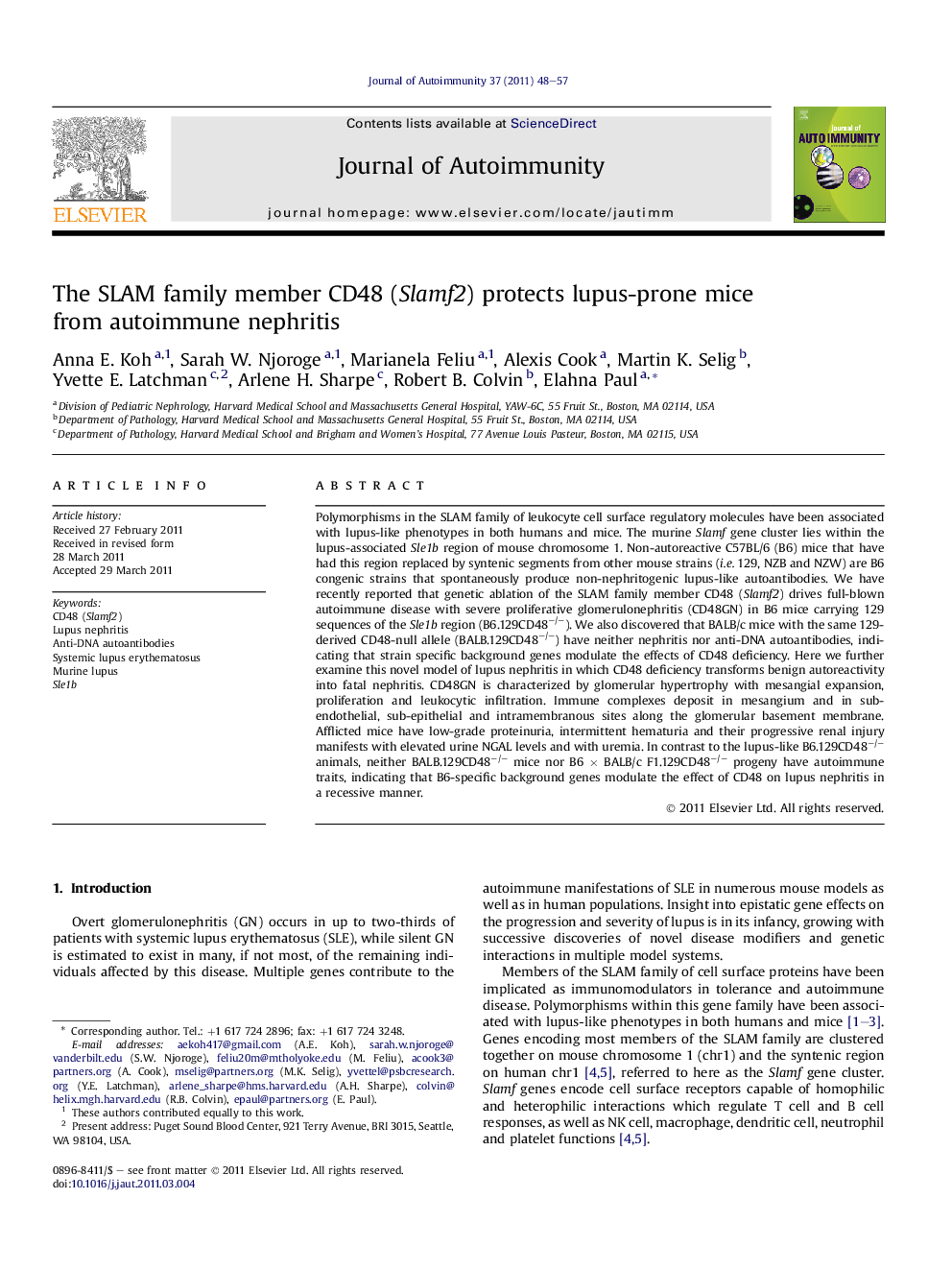| Article ID | Journal | Published Year | Pages | File Type |
|---|---|---|---|---|
| 3368025 | Journal of Autoimmunity | 2011 | 10 Pages |
Polymorphisms in the SLAM family of leukocyte cell surface regulatory molecules have been associated with lupus-like phenotypes in both humans and mice. The murine Slamf gene cluster lies within the lupus-associated Sle1b region of mouse chromosome 1. Non-autoreactive C57BL/6 (B6) mice that have had this region replaced by syntenic segments from other mouse strains (i.e. 129, NZB and NZW) are B6 congenic strains that spontaneously produce non-nephritogenic lupus-like autoantibodies. We have recently reported that genetic ablation of the SLAM family member CD48 (Slamf2) drives full-blown autoimmune disease with severe proliferative glomerulonephritis (CD48GN) in B6 mice carrying 129 sequences of the Sle1b region (B6.129CD48−/−). We also discovered that BALB/c mice with the same 129-derived CD48-null allele (BALB.129CD48−/−) have neither nephritis nor anti-DNA autoantibodies, indicating that strain specific background genes modulate the effects of CD48 deficiency. Here we further examine this novel model of lupus nephritis in which CD48 deficiency transforms benign autoreactivity into fatal nephritis. CD48GN is characterized by glomerular hypertrophy with mesangial expansion, proliferation and leukocytic infiltration. Immune complexes deposit in mesangium and in sub-endothelial, sub-epithelial and intramembranous sites along the glomerular basement membrane. Afflicted mice have low-grade proteinuria, intermittent hematuria and their progressive renal injury manifests with elevated urine NGAL levels and with uremia. In contrast to the lupus-like B6.129CD48−/− animals, neither BALB.129CD48−/− mice nor B6 × BALB/c F1.129CD48−/− progeny have autoimmune traits, indicating that B6-specific background genes modulate the effect of CD48 on lupus nephritis in a recessive manner.
